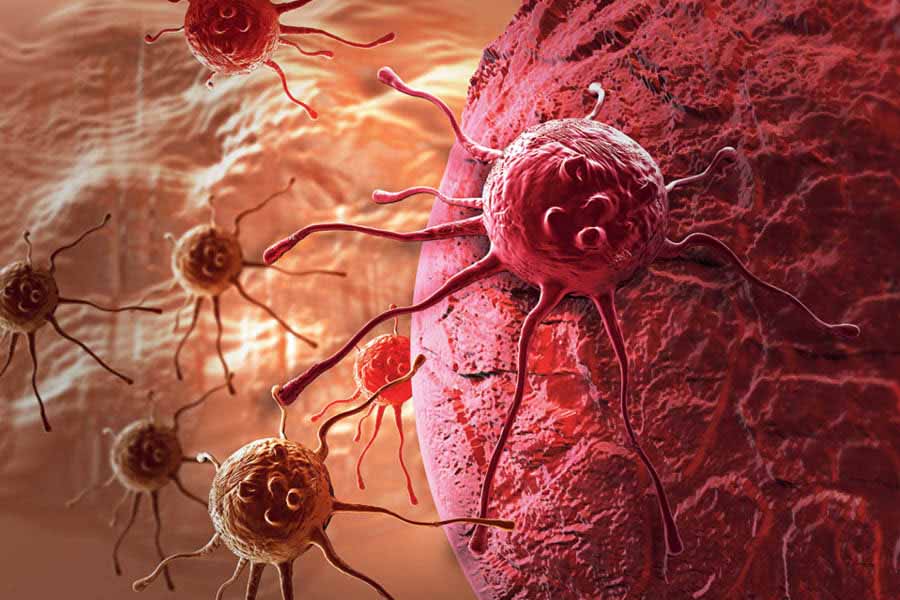Hyder Ali, the 18th century ruler of Mysore, gave the British a run for their money. His brilliant military powers could have changed the course of Indian history had it not been for cancer. Back then, with battles raging across the country, India had little time for science. All we know about Ali’s death is that he carried a “cancerous growth” on his back and succumbed to its relentless spread. The sultan died in 1782.
Interestingly, but not surprisingly, just three years later, there was enough knowledge of cancer in the UK to identify its first cause. British surgeon Percivall Pott discovered that cancer of the scrotum was a common disease among chimney sweeps, routinely wiping out those in charge of removing soot. Till date we do not know what type of cancer killed Hyder Ali.
Cancer cases in India increased at an average annual rate of 1.1 to 2 per cent between 2010 and 2019
Cut to the 21st century and we witness the same lack of urgency and continued complacency around cancer in India. Let us deal with some hard numbers to set the context. At present, there are 1.38 million new cases of cancer in India. As many as 1,392,179 people in India had cancer in 2020, according to a global oncology report. According to another report, cancer cases in India increased at an average annual rate of 1.1 to 2 per cent between 2010 and 2019. Deaths from cancer in the country also went up at an average rate of 0.1 to 1 per cent in the same period.
To add to the concern, India’s growth rates for cancer are among the highest globally, making India an unenviable candidate for being the cancer capital of the world.
Around 40 to 45 per cent of cancer cases in India are related to tobacco products. Two hundred Indian women die from cervical cancer every day. The top three cancers raging in India include breast, cervix and oral. However, many of the most common types of cancer affecting India are preventable cancers. Early detection and subsequent prevention policies and programmes can stem this deluge before it turns into a tsunami of monstrous proportions.
We need dedicated social workers and paramedics as well as government subsidies

Subsidising essential cancer screening programme payments can be an important part of the cancer prevention mechanism TT Archives
What can we do to prevent cancer? Let us put our boots on the ground and look at the basics. First and foremost, we need dedicated social workers and paramedics trained exclusively in the early detection of major cancers to raise the bar of awareness and education. We need trained personnel to visit every family, almost in a home-to-home search style. Especially in rural settings.
Next, we need to ask some vital questions. Is the pap smear done according to the guidelines? Is the yearly mammogram done in time? Is colonoscopy done according to risk factors? This is precisely where the government can come in. How about subsiding essential cancer screening programme payments to accommodate those who cannot afford the cost? Emotions and ethics apart, purely from a business standpoint, preventing cancer among millions of underprivileged Indians will probably add more value to the economy than building corporate hospitals that most Indians cannot afford.
This brings us to tobacco usage. The scourge that continues to inflict carnage on Indians, despite statutory warnings, roadside hoardings and media advertisements. How about taking it to the next level and documenting the adverse effects of tobacco chewing and nicotine smoking as part of national school curricula? How about routine oral check ups and lung cancer screening for those at risk?
At the end of the day, what are we trying to accomplish? We are trying to create a mindset of awareness where early detection and warning signs, timely screenings and subsequent prevention become the fulcrum of cancer management.
In short, it’s life-saving to nip cancer in the bud. And we don’t need to ask Hyder Ali to be sure.
Dr Shuvendu Sen, born and brought up in Kolkata, is a US-based physician currently serving as the vice-chair, Research, at the Jersey Shore University Medical Center, New Jersey. An award-winning physician and author, his works include The Fight Against Alzheimer’s (Rupa Publications, 2024), Why Buddha Never Had Alzheimer’s (HCI/ Simon & Schuster, 2017) and A Doctor's Diary (Times Group Books, 2014), among others. Dr Sen can be reached at shuvendusen57@gmail.com
